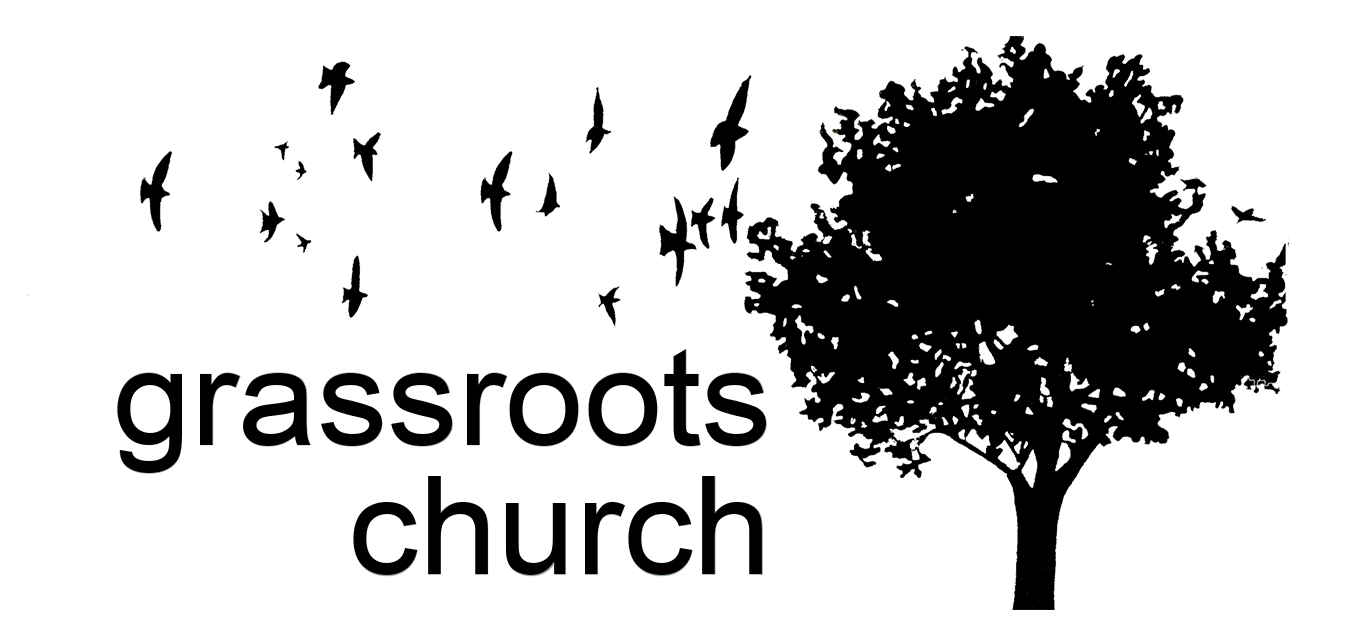
This past Sunday I spoke on how the Good News of Jesus helps heal our wounded images of God. There was a lot to be said about this topic and the problem with Sunday sermon preaching is that I don’t always get (read: never) enough time to fully expound on thoughts and themes to my satisfaction. And I get enough flack as is with how long I preach 😉 This is why this little corner of the newsletter is handy!
To this end, I received a gracious email from a Grassrooter seeking further clarification on some of what was said in regards to the dominant wounded views of God that many of us carry and I imagine that if he thought this, there’s a chance others in the community may have had similar sentiments. So this week I’d like to share what I shared with him to further the conversation from Sunday’s sermon. First, here’s what the original query sought to understand further (in my words, not his):
- I had noted that for many of us, the dominant feeling that our faith and relationship to God was that of guilt but is guilt not a good thing? Guilt is what leads us to repentance and we shouldn’t shirk it.
- We need a balanced and complete picture of Jesus and part of that is dealing with our failures accordingly rather than seeing God as “too loving to condemn our sins” (his words).
So here’s what I more or less said in response to these earnest and thoughtful considerations (adapted for the purpose of this post):
On Guilt
Regarding the wounded images of God and guilt, I agree with you. The thing I was trying to point out was that guilt is the dominant feeling many of us have as Christians – over and above feeling loved, feeling protected, feeling accepted, feeling forgiven, etc. Wouldn’t you agree it’s an unfortunate image of God we form when guilt is the MAIN feeling that easily trumps all other potential responses in contemplating the Divine? Of course guilt has its advantages as it can lead to repentance and so I’m not discounting guilt in and of itself, just that it’s such an unfortunate reality that many of us see a condemning Father over a loving and embracing Father.
On Love and Balance
On the issue of finding balance about God’s love, I’d say I think the Bible is pretty clear God IS love. So any act of his flows from this. Maybe what’s needed is a clearer understanding of what love means. Because obviously it’s not a doting grandpa who spoils their grandkids with anything they ask for or turns a blind eye to any fault or misdeed. That’s not love. This leads to an entitlement and an abuse of grace as we’ve seen so often in the Church. But I think, or at least I hope, most people understand love as more than that. Love disciplines and corrects and even rebukes. I think Jesus loved the religious leaders as much as he loved the sick and sinners – but the way he loved them looked different because their needs were different. But again, I think the wounded image of God many of us hold is one that elevates “love as discipline/wrath” over and above love as acceptance and embrace and restoration and so this needs correcting; we need reform in how we understand God’s love. …But it’s not to deny the multifaceted way that love is expressed.
And yet, here’s me speaking out of both sides of my mouth. Because despite all of what I just wrote about corrective love, I’m also torn because I think the way Jesus frames the Prodigal Father challenges us in his reckless love for his wayward sons. This picture of a Father’s no-matter-what-ness kind of love just keeps drawing me in and doing something to my soul that I just can’t put into words completely. As I discern what the Spirit is speaking to me, I feel myself moving more and more toward this expression of his love because I see it as so much more transformative than a love that requires “penance” of sorts. It’s far riskier, sure, but who among us, if our Father simply embraced us in the aftermath of our rebellion, wouldn’t be moved toward a greater desire to obey and to please him? I am convinced that transformation and healing comes from a confidence that we are loved and cherished.
Well, that’s good for now. So much more can be said about all of this and I appreciate the commitment from you, community, on being engaged with the teaching each Sunday and challenging me and being willing to be challenged. None of us have God or our theology “completely right” and all of us have need for correcting. May we have the humility and the grace with one another to do just that within our community.
Grace and Peace!

This idea of a ‘no penance’ God Father reminds me so much of some new schools of thought around parenting and the success of the form of parenting that does not punish but instead seeks to connect offers insight into your comments. This shift in parenting is often needed for neurodivergent children or children who are significantly challenged by authority. If we are to look at the gap between the way we behave in the world and the way God intended us to live I would say we definitely definitely have a a gap even larger between that of the expectation we have for some children and what they are capable of. After going through a deep dive learning a new style of parenting for my neurodivergent children, I came out with the mantra “decrease expectations and increase connection” (until they are grounded enough by our love and support to increase expectations). I think the prodigal son story shows this is sound parenting advice and the love of a parent who meets their child where they are at, which we continually see from our loving Father God.
Yes, that’s so interesting! Thanks Ashley for these thoughts. I can definitely see how “decrease expectation and increase connection” is the assumption held by the Father with his prodigal sons. He cares more about relationship with them than he does correcting their bad behaviour, understanding that should the relationship be in place, the behaviour will follow.
For me, it has been helpful to learn about the difference between shame and guilt…and how the two can play out in basically every arena of my life with vastly different results.
I think we tend to use the words interchangeably in the English language which creates confusion.
For example, I can parent with an understanding of the benefits of guilt when my children need correct or I can use shame to try to get a response/behaviour change…what is best for my children and my relationship with them…
In my own mind…if I focus on guilt when I’ve made an error or not made a choice consistent with my values then I can move forward with positive self talk and growth mindset of returning to my values and correcting my mistakes. If I allow shame to speak in my mind – connection is lost, I don’t see a way to improve or return to my values.
From Bene Brown: Based on my research and the research of other shame researchers, I believe that there is a profound difference between shame and guilt. I believe that guilt is adaptive and helpful—it’s holding something we’ve done or failed to do up against our values and feeling psychological discomfort.
I define shame as the intensely painful feeling or experience of believing that we are flawed and therefore unworthy of love and belonging—something we’ve experienced, done, or failed to do makes us unworthy of connection.
I don’t believe shame is helpful or productive. In fact, I think shame is much more likely to be the source of destructive, hurtful behavior than the solution or cure. I think the fear of disconnection can make us dangerous.
Hi Twylla! Yes – this distinction between shame and guilt is super helpful. Guilt can easily lead to shame which is when it can hurt us. Again, whether it’s guilt or shame, it’s a shame (harhar) that these feelings have inadvertently become the dominant response we have in considering how we understand God. Thanks for sharing your thoughts 🙂